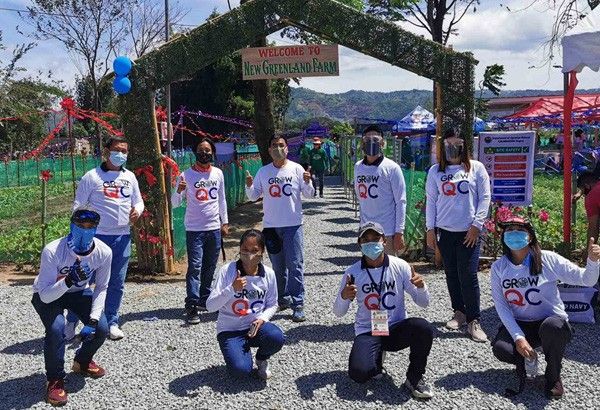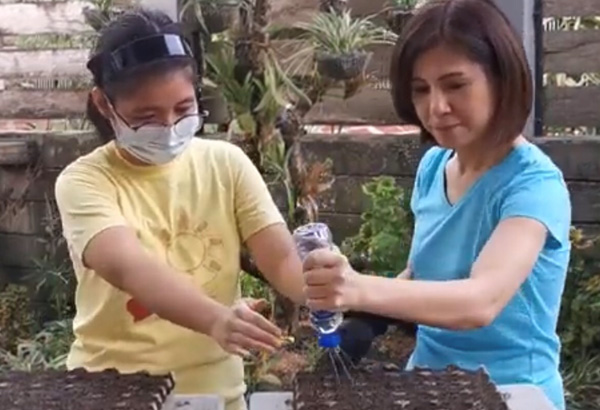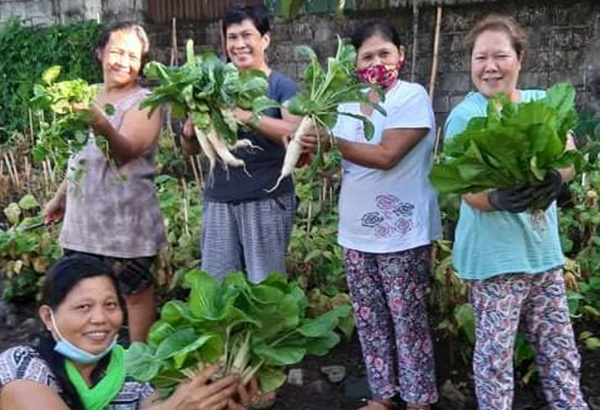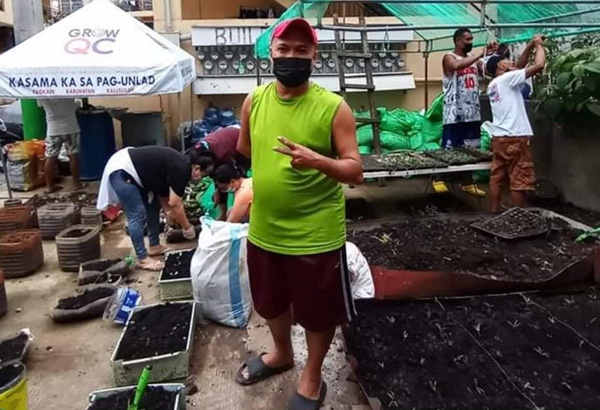How urban farming helps a society in crisis


MANILA, Philippines — The rise of gardening as a hobby became more evident with the pandemic forcing everyone to stay at home since early last year.
Suddenly, plantitos and plantitas were everywhere on social media, getting their hands dirty in the most literal way for this new diversion. With mental health more felt an issue than ever before, gardening thrived as a new form of therapy.
I myself have my own garden at home, which I tend to in my free time. From my potted plants, I source my basil, onion, okra, kangkong, lime and calamansi — urban farm to table style. Whether alone or with my family, I consider my moments here precious, but not just for the sake of my mental wellness. Somehow while potting, digging, and watering my plants, I feel like I’m closer to nature and ultimately, God.
But while many people take to gardening just for mental health, some take it a level up for a much more practical purpose: Economics. I learned this in our most recent episode on “Pamilya Talk” where some urban gardening and farming advocates discussed about both, its short and long term benefits.

The potential of urban farming
In Quezon City where my family and I reside, the local government apparently has been keen on supporting urban gardening since Mayor Joy Belmonte’s term as vice mayor. In particular, the newly-created Quezon City Food Security Task Force initiative, “GrowQC”, is aimed at strengthening urban agriculture with community empowerment and self-reliance in mind.
It’s no secret how the pandemic forced many businesses to shut down, leading to interruptions in the supply chain. With food insecurity getting worse, GrowQC finds itself encouraging communities to come together and look for a safe and manageable safety net in their food resources.
Included in GrowQC’s main action points are: cultivate open and idle spaces into productive urban farms; sending seed starter kits to citizens for home use, and; establishment of model community farms. Currently, GrowQC monitors 303 urban fams and gardens within the city.
On the show, my hubby Nonong Velasco -- co-chair of GrowQC and head of the city’s Sustainable Development Affairs Unit -- reported more positive figures in line with the cause. He said that while the program had earlier canvassed around 280,000 sqm. of property with urban farming and gardening potential, it would see a growth at 320,000 sqm. by August 2021.
“More than 100% nung sinabi nating potential ay natamnan na natin,” he said. “So, when you talk about impact, nandyan yung aming mga urban gardener at farmer na umaabot ng 2,300. Naidugtong at nadadala rin natin ang sobrang ani ng ating mga urban farm sa mga community feeding program at mga community pantry sa lungsod.”
GrowQC keeps a Facebook community to promote urban agriculture and overall food security. It also uses the platform to bridge urban farmers together, while connecting with those needing support.
Ofelia "Ate Ofel" Bagotlo, President of the Amlac Village Urban Gardeners in Payatas said in the video aired during the show, "Ngayon pong ECQ ulit nabawasan po ang aming pangamba na baka magutom po ang aming mga kasamahan. Kasi nga po ay may mga masustanya na po kaming gulay, at kahit paano po ay may kinkita naman po kami sa pinagbentahan ng mga ito. Sabi nga po namin, halamanan ng pagmamahalan ito dahil dito po nabuo ang napakagandang samahan.”

Nature’s wonders in bridging communities
QC Housing Project 9 and the New Greenland Farmers Agriculture Cooperative, Bagong Silangan are among those whose urban farms have exemplified GrowQC’s vision.
Starting with a small team of five, QC Housing Project 9, in particular, has since drawn more neighbors to take part in urban farming. Front and center of the community is its president Tim Salaguste, who despite his physical disability is diligent at leading these efforts. Effervescent, if you may.
For Salaguste, his urban garden couldn’t have been tilled at a perfect time—providing for the community during these economically and emotionally challenging years.
“Malaking epekto talaga kasi majority dito sa amin ay nawalan ng trabaho. Mayroong construction, mayroong delivery, logistics, at iba pa. So, yung mga hindi (essential), talagang natigil,” he recalled.
Salaguste is proof that our coexistence with nature comes intrinsically as much as our desire to help.
“Napakasarap sa pakiramdam na yung pagtatanim namin, hindi lang nakatulong sa kapitbahay. Pero naging modelo kami para ma-engganyo yung iba na magtatanim,” he beamed.

Gardening for our mental health
Nonong attests to the importance of farming and food security to mental wellness and a fulfilled life. “Our mental states are relieved through urban agriculture – because as what Tim has said, the very nature of it is grounding and reassuring. Many of us project ourselves onto the plants and vegetables we cultivate, seeing that yes, we too can triumph over adversity and become healthy and whole. That’s the mental/emotional benefit of these programs,” Nonong explained.
Studies show that the early phase of the pandemic in the Philippines already led to adverse effects on the Filipinos’ mental health. In a 2020 research by Michael L. Tee, et al, one in four respondents experienced moderate to severe anxiety between March and April last year. One in six, meanwhile, had moderate to severe depression and psychological impact. It wasn’t a coincidence then that some of us had become creative in ridding ourselves of stress.
Philippine Psychiatric Association fellow Joan Rifareal said urban gardening easily helped our cause.
“Tatlo agad ang impact nya. First, physically, it can have an impact on our happy hormones. Second, psychologically, nagbibigay po ito ng meaning and purpose in our lives na bumangon everyday. And of course, third, its social impact. It brings (people) together. It forms communities and fosters belongingness to a group, to a community. Ang ganda po ng impact nun sa ating mental health dahil nararamdaman po natin na hindi tayo nag-iisa, na lagi tayong may kasama.”
“Sometimes, it’s really important to disconnect for us to be able to reconnect. Reconnect with nature, reconnect with ourselves. Kapag tayo ay nasa nature, na-ga-ground tayo at nagiging mindful tayo sa ating situation, sa ating blessings, and we feel all of the positive emotions,” Dr. Rifareal stressed.
--
Please watch Pamilya Talk on Facebook, YouTube, and Kumu (@JingCastaneda – 5:30-7:00pm Monday, Tuesday & Wednesday). Please share your stories or suggest topics at jingcastaneda21@gmail.com. You can also follow and send your comments via my social media accounts: Instagram, Facebook, YouTube, Twitter and Kumu.


















